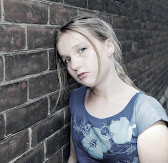Sleep Problems in Teens on the Autism Spectrum

Question I'm a single mother and don't know how to deal with my 13 yr old anymore. He doesn't want to go anywhere or do anything which is hard when you have to, and I am now homeschooling him due to trouble going to school. A big problem right now is sleep issues… he is so active at night and tired during the day. At the moment he is not falling asleep till about 1 or 2 am, and I've tried waking him up earlier to reset his body clock but I can't get him out of bed. I don't know how to get him back into a healthy sleep routine. Answer Studies find that approximately 73% of kids with ASD level 1 (high-functioning autism) experience sleep problems, and these problems tend to last longer in this group than they do for kids without ASD. For example, kids on the spectrum are more likely to be sluggish and disoriented after waking. Laboratory research has begun to describe the unique physiological presentation associated with sleep problems in kids with A





